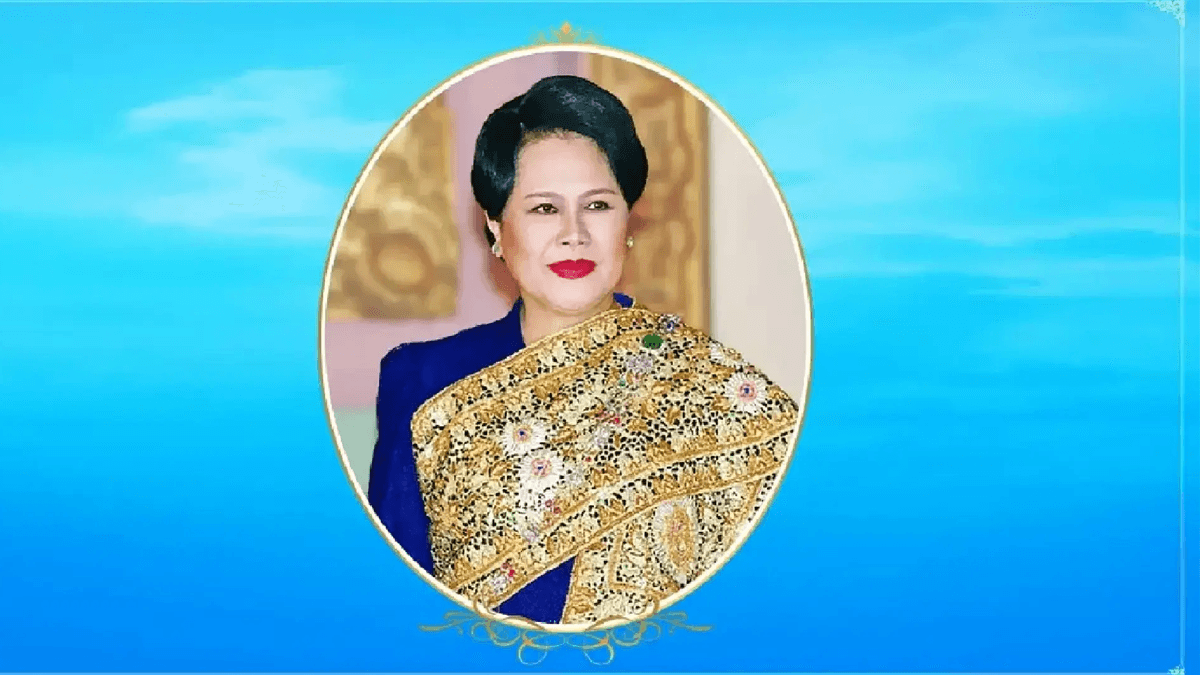Queen Mother Sirikit of Thailand dies at 93 after decades of royal service
Queen Mother Sirikit of Thailand, known for her deep involvement in rural development and traditional craft preservation, has died at the age of 93 in Bangkok after suffering a blood infection.

Queen Mother Sirikit of Thailand died on Friday (24 Oct) at the age of 93, the Royal Household Bureau announced. She passed away at Chulalongkorn Hospital in Bangkok after suffering from a blood infection since 17 October.
Her health had been in decline for years, and she had largely withdrawn from public life. Her death marks the end of a remarkable chapter in Thai royal history, following the 2016 death of her husband, King Bhumibol Adulyadej, who reigned for 70 years.
Sirikit was a prominent figure in Thailand, celebrated for her deep commitment to humanitarian causes and national development. She played a significant role in preserving traditional Thai crafts, supporting rural livelihoods, and advocating for environmental protection.
Her passing comes as the country continues to reflect on the monarchy’s evolving role during decades of political transformation and social change.
Born on 12 August 1932 into an aristocratic family in Bangkok, Sirikit Kitiyakara was raised during a period of significant transition in Thai politics, as the country moved from absolute to constitutional monarchy.
Her father, a diplomat and distant relative of the royal family, was appointed ambassador to France after World War II. It was in Paris, at age 16, that she met Bhumibol Adulyadej, then crown prince and a distant cousin.
Their relationship deepened after Bhumibol was injured in a car accident. Sirikit moved to Switzerland to care for him during his recovery. The couple married on 28 April 1950, shortly before his coronation on 5 May the same year.
Throughout their marriage, Sirikit accompanied the king on numerous visits across Thailand and abroad. In the early years, the royal couple acted as goodwill ambassadors, strengthening ties with other nations.
By the 1970s, they had shifted focus to domestic issues. Together, they visited remote villages, addressing rural poverty, drug addiction, and the threat of communist insurgency.
Sirikit became known for her personal approach. She often engaged directly with villagers, listening to grievances ranging from personal disputes to health concerns.
Speaking to The Associated Press in 1979, she said: “Misunderstandings arise between people in rural areas and the rich, so-called civilised people in Bangkok. People in rural Thailand say they are neglected, and we try to fill that gap by staying with them in remote areas.”
One of her most enduring legacies is the SUPPORT Foundation, which she established in 1976. The initiative promoted traditional Thai crafts such as silk weaving, ceramics, and jewellery-making, providing economic opportunities for thousands of rural villagers.
She was also active in conservation. Her projects included wildlife breeding centres, open zoos, and marine hatcheries. Nicknamed the “Green Queen,” she sought to balance development with sustainability through initiatives like “Forest Loves Water” and “Little House in the Forest.”
Sirikit’s image was prominently displayed in homes, schools, and government buildings, and her birthday—12 August—was declared National Mother’s Day, a tribute to her maternal role in the nation’s consciousness.
Despite her public popularity, Queen Mother Sirikit was not free from controversy. In later years, as the monarchy faced growing scrutiny amidst Thailand’s political unrest, her influence was debated.
Notably, her attendance at the funeral of a protester killed in a political clash was interpreted by many as a political statement. While she remained largely silent during such upheavals, questions persisted about her behind-the-scenes involvement during military takeovers and protests.
Nevertheless, her reputation in rural Thailand remained largely intact, and she continued to be seen as a vital link between the monarchy and the people.
Queen Sirikit is survived by her four children: King Maha Vajiralongkorn, and princesses Ubolratana, Sirindhorn, and Chulabhorn.
She leaves behind a legacy of cultural preservation, social advocacy, and unwavering dedication to the institution of the monarchy.
In her own words from a 1979 interview: “There are some in the universities who think the monarchy is obsolete. But I think Thailand needs an understanding monarch. The mere word king has something magic in it. It is wonderful.”







